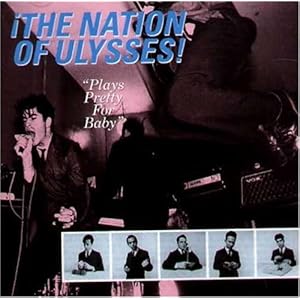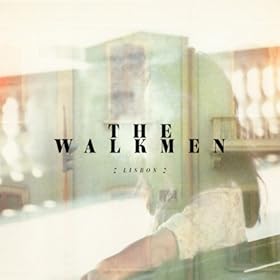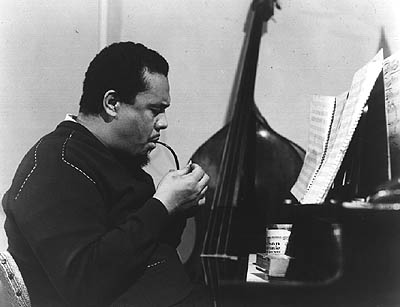 While you're all donning the proverbial lampshade headgear in anticipation of the ball dropping at midnight, I'm hard at work bringing y'all the next five entries. Devotion! Save a glass and a kiss for me, won't you?
While you're all donning the proverbial lampshade headgear in anticipation of the ball dropping at midnight, I'm hard at work bringing y'all the next five entries. Devotion! Save a glass and a kiss for me, won't you?15. Chicago Underground Duo, Boca Negro
Chad Taylor and Rob Mazurek -- both busy guys, the latter hard at work with a group to appear further on up this list -- regroup as one iteration of the Chicago Underground improvising collective (they've been a trio, quartet, quintet and orchestra, too) to record ten complex, delicate and intriguing tracks. Traditional instruments (cornet, drums, vibes, mbira) are washed over and beneath by electronics, treated and tweaked, modulated and augmented, but the humanity underlying it all is never once compromised. Beautiful, strange, natural and touching.
14. David S. Ware, Onecept
Ware's sound is scraped down to the bone, extraneous layers sloughed off, sinew and bone exposed. He has been to hell and back, and he squeezes all of that through the mouthpiece of his horn. This is completely improvised. Tape rolls, ideas flow. That deviates from Ware's usual work pattern, and the results are harrowing. Warren Smith (d) and William Parker (b) are along for the ride. No slouches, either of them, but this is Ware's statement. Music as both test and testimony.
13. Tu Fawning, Hearts on Hold
Tu Fawning's not-so-secret weapon is Corrina Repp, who possesses a voice as big as Florence's, but a much smaller profile, at least so far. Quite a year for Flo and her Machine; might 2011 see Repp and her bandmates soundtracking a million mocha latte afternoons, too? The differences are more numerous than the similarities, but the voices beg comparison. I owe PF a case of thanks for introducing me to this band's debut EP; it had me fairly giddy for the full length. I take it the band went from duo to quartet in that time, and the sound also got bigger. Dramatic, grand and brash, but nuanced, subtle and delicate, too. Hearts on Hold is one of those records that's as much about feel as it is sound. Records like that are the ones you remember.
12. Surfer Blood, Astro Coast
Something in the water has surf/surfer/surfing featuring prominently in the cultural conversation circa now, more as notion than activity: surf music, "Angela Surf City," "Learned to Surf," and this band from Florida, where such a thing is at least plausible. What gives? Who's to say. Or care. Probably just a coincidence, but worth mentioning, anyway. Maybe. Astro Coast is a heavily reverbed storm front of pop-punk harmony meeting a low pressure zone of shoegazey noise. The breakers are huge! Wax down and paddle out, and catch a wave, or whatever!
11. The Black Keys, Brothers
Dan Auerbach's voice is a mournful instrument, a bluesy wail, a creaky gearbox, a sonic seducer; it is a thing kicked loose from time to wander the ether and the spiritual midspace between Memphis, Muscle Shoals and, er, Akron. The Black Keys' bluesrock is a delicate balance -- when you choose such as your arena, you risk falling into parody or slavish retread. But these two keep on the right side of that hashed line; they're neither too Zeppelin nor too... what? Raging Slab? Save your White Stripes comparisons as they're baseless and ill-informed. Might as well lump the Porsche and the Grand Caravan together (four wheels and an internal combustion? Check!). Brothers finds a helluva band in full stride, their footing sure, their direction unquestioned. And that voice!
Happy New Year!















